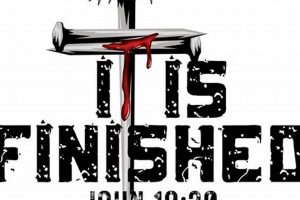The phrase in question indicates a search for services related to the completion of a basement remodeling project within a specific geographic area. It exemplifies the user’s desire to locate contractors or companies that specialize in transforming unfinished basement spaces into functional, aesthetically pleasing living areas in proximity to their residence. A typical user might enter this query into a search engine to find local professionals capable of handling all aspects of basement finishing, from framing and insulation to electrical work and flooring.
Undertaking a basement finishing project provides significant benefits, including increased living space, enhanced property value, and the ability to customize an area to meet specific needs such as a home theater, guest suite, or recreation room. Historically, basements were primarily utilized for storage or as utility areas. However, modern construction techniques and design trends have elevated the basement’s potential, transforming it into a valuable and integral part of the home. The location-based aspect of the search highlights a preference for local service providers, potentially due to factors like ease of communication, quicker response times, and familiarity with local building codes and regulations.
The subsequent sections will delve into key considerations for prospective clients, including strategies for selecting qualified contractors, understanding project costs and timelines, navigating permit requirements, and exploring design options to maximize the potential of a transformed basement space. This exploration aims to provide a comprehensive guide to successfully completing a basement finishing project.
Essential Tips for a Successful Basement Finishing Project
Prior to engaging services located through a “finish basement near me” search, careful planning and diligent execution are critical to ensure a successful and satisfactory outcome. The following tips offer guidance for navigating the various stages of the project.
Tip 1: Define Project Scope and Budget: Before contacting potential contractors, establish clear objectives for the finished space. Determine intended usage (e.g., recreation room, home office, additional bedroom), desired aesthetic, and a realistic budget. This clarity facilitates effective communication with contractors and helps manage expectations.
Tip 2: Verify Contractor Credentials and Insurance: Thoroughly vet potential contractors discovered through a “finish basement near me” query. Verify licenses, check references from previous clients, and confirm adequate insurance coverage, including liability and worker’s compensation. This mitigates potential risks associated with unqualified or uninsured workers.
Tip 3: Obtain Detailed Written Estimates: Secure comprehensive written estimates from multiple contractors. The estimates should itemize all costs, including labor, materials, permits, and any potential contingencies. Scrutinize the estimates for clarity and completeness, and address any discrepancies or ambiguities before proceeding.
Tip 4: Secure Necessary Permits: Confirm whether the planned basement finishing project requires permits from the local building authority. Engage the contractor in the permit acquisition process and ensure compliance with all applicable building codes and regulations. Failure to obtain necessary permits can result in fines or mandatory rework.
Tip 5: Address Moisture Issues: Before commencing any finishing work, address any existing or potential moisture problems in the basement. Inspect for cracks in the foundation, ensure proper drainage, and consider installing a vapor barrier to prevent moisture intrusion. Addressing moisture proactively protects the finished space from mold and water damage.
Tip 6: Plan for Adequate Lighting and Ventilation: Basements often lack natural light and ventilation. Incorporate a well-planned lighting scheme with a combination of ambient, task, and accent lighting. Install or upgrade ventilation systems to ensure adequate air circulation and prevent the build-up of stale air and odors.
Tip 7: Negotiate a Detailed Contract: Once a contractor is selected, execute a comprehensive contract that outlines the project scope, timeline, payment schedule, materials specifications, and warranty information. The contract should also address potential dispute resolution mechanisms. A well-defined contract protects the interests of both parties.
Implementing these tips helps mitigate potential challenges and ensures a smoother, more successful basement finishing experience. Careful planning and attention to detail are essential for transforming an unfinished basement into a valuable and enjoyable living space.
The subsequent sections will focus on the design trends and innovative uses for finished basements, demonstrating the versatility and potential of these spaces.
1. Local Contractor Availability
The phrase “finish basement near me” inherently emphasizes the crucial role of local contractor availability. The search query itself indicates a desire for geographically proximate service providers, thus making contractor accessibility a primary factor in project feasibility and execution. A limited number of qualified contractors within a specific area can significantly impact project timelines, pricing, and overall service quality.
- Proximity and Response Time
A key aspect of local contractor availability is the reduced travel time and improved responsiveness. Contractors located closer to the project site can typically respond more quickly to inquiries, provide faster on-site consultations, and address unforeseen issues with greater efficiency. For instance, a local contractor can promptly assess a water leak or electrical problem that might arise during the finishing process, mitigating potential damage and delays. This proximity translates into smoother project management and enhanced communication.
- Familiarity with Local Codes and Regulations
Local contractors possess a deeper understanding of regional building codes, permit requirements, and inspection processes. Their experience navigating these local regulations ensures compliance and minimizes the risk of costly errors or delays associated with non-compliance. For example, a contractor familiar with local energy efficiency standards can recommend appropriate insulation materials and techniques, ensuring the finished basement meets required specifications. This localized expertise is invaluable in streamlining the permitting process and avoiding potential setbacks.
- Established Relationships with Suppliers and Subcontractors
Local contractors often cultivate established relationships with local suppliers, subcontractors, and tradespeople. These connections can lead to preferential pricing on materials, access to specialized expertise, and a more streamlined project workflow. For example, a local contractor might have a long-standing relationship with a trusted electrician or plumber, ensuring reliable and timely service for the basement finishing project. These established networks contribute to a more efficient and cost-effective project execution.
- Community Reputation and Accountability
Local contractors are often more invested in maintaining a positive reputation within their community. Their work is subject to scrutiny from neighbors, local review platforms, and word-of-mouth referrals. This heightened accountability can translate into a greater commitment to quality workmanship and customer satisfaction. For instance, a contractor who relies on local referrals is more likely to prioritize delivering a superior finished product and addressing any concerns promptly. This community-driven reputation fosters trust and provides homeowners with added assurance.
In conclusion, the availability of competent contractors in the immediate vicinity is not merely a convenience, but a critical component of a successful basement finishing endeavor. By leveraging the proximity, localized knowledge, established relationships, and community accountability of local contractors, homeowners significantly increase the likelihood of a timely, cost-effective, and high-quality basement transformation that aligns with their specific needs and local regulatory requirements.
2. Cost Estimates Comparison
The search term “finish basement near me” inherently leads to the necessity of cost estimates comparison. The initial query indicates a desire to engage local contractors for a specific service, the transformation of an unfinished basement. As a direct consequence, obtaining and comparing multiple cost estimates becomes a fundamental step in the selection process. Without a thorough comparison, the property owner lacks the data required to make an informed decision, potentially leading to financial miscalculations or the selection of a contractor offering suboptimal value.
The significance of cost estimates comparison extends beyond simply identifying the lowest price. A comprehensive comparison involves scrutinizing the individual components of each estimate, including labor costs, material costs, permitting fees, and contingency allowances. For example, two contractors might offer similar overall estimates, but a closer examination reveals one proposes using higher-quality materials while the other includes a more robust contingency fund to address unforeseen issues. This level of detail is crucial for understanding the true value proposition of each contractor. Consider the hypothetical scenario where a homeowner in Anytown, USA, requests three estimates. Contractor A offers the lowest price but uses generic materials. Contractor B offers a slightly higher price but specifies energy-efficient insulation and premium flooring. Contractor C offers the highest price but includes a comprehensive warranty and project management service. The homeowner must weigh these factors, not just the bottom-line number, to determine the best overall value.
In conclusion, the process of comparing cost estimates is inextricably linked to the “finish basement near me” search. It is not merely a peripheral consideration, but rather a critical component that empowers homeowners to make informed decisions, select qualified contractors, and manage their project budgets effectively. Challenges can arise in interpreting the nuances of different estimates and ensuring the inclusion of all necessary project elements. However, a rigorous approach to cost estimates comparison ultimately contributes to a successful and financially responsible basement finishing project.
3. Permitting Requirements Clarification
The phrase “finish basement near me” directly correlates with the critical need for “Permitting Requirements Clarification.” Engaging in a basement finishing project necessitates compliance with local building codes and regulations. A search for local service providers implicitly involves adherence to these local mandates. Failure to clarify permitting requirements can lead to significant repercussions, including project delays, fines, mandatory rework, and potential legal issues. The act of searching for a local contractor should immediately prompt an investigation into the specific permits required for basement finishing in the relevant jurisdiction. For example, in many municipalities, separate permits may be required for electrical work, plumbing, and structural modifications. Ignoring these requirements, even inadvertently, can result in substantial financial and legal liabilities.
The practical significance of understanding and addressing permitting requirements manifests in various stages of a basement finishing project. Initial consultations with contractors should include a discussion of permitting processes. Reputable contractors will possess familiarity with local regulations and assist in navigating the application process. Furthermore, the project budget should allocate funds for permit fees and potential inspections. A proactive approach to permitting ensures that the project adheres to safety standards, protects property value, and avoids future disputes with local authorities. Consider the scenario where a homeowner, after searching “finish basement near me,” hires a contractor who fails to obtain the necessary electrical permit. A subsequent inspection reveals non-compliant wiring, requiring costly remediation and potentially delaying the project for weeks. This example underscores the importance of upfront diligence in clarifying permitting requirements.
In summary, the correlation between “finish basement near me” and “Permitting Requirements Clarification” is inextricable. The search for local basement finishing services should trigger a proactive effort to understand and comply with all applicable permitting regulations. This proactive approach minimizes risk, ensures code compliance, and contributes to a successful and legally sound basement transformation. Challenges may arise in deciphering complex regulations or navigating bureaucratic processes. However, prioritizing permitting clarification as an integral component of the project is essential for protecting the homeowner’s investment and ensuring a positive outcome.
4. Design Options Exploration
The phrase “finish basement near me” initiates a process that inherently demands “Design Options Exploration.” The search for local basement finishing services presupposes a desire to transform an existing, often unfinished, space into a functional and aesthetically pleasing living area. This transformation necessitates careful consideration of various design possibilities to align with the homeowner’s specific needs, preferences, and budget. The availability of local contractors, as suggested by the search term, directly influences the range and feasibility of available design options. For instance, a homeowner seeking a home theater may discover that local contractors possess expertise in soundproofing and custom audio-visual installations. Conversely, a desire for a simple recreational space may lead to exploring more cost-effective and readily available design solutions offered by nearby service providers. A limited exploration of design options can result in a suboptimal use of space, failure to maximize property value, and ultimately, dissatisfaction with the finished basement. Consider a homeowner in a suburban area who, after searching “finish basement near me,” only considers basic finishing options like drywall and carpeting. They overlook the potential for a custom-built home office with integrated storage solutions, a design element that would significantly enhance their work-from-home experience and potentially increase the resale value of their property.
The practical significance of engaging in thorough design options exploration is multi-faceted. It allows homeowners to optimize the use of their basement space, creating a functional area that meets their specific needs, whether it be a guest suite, home gym, play area, or entertainment center. Furthermore, thoughtful design choices can significantly enhance the aesthetic appeal of the finished basement, creating a seamless extension of the home’s existing living space. Additionally, certain design features, such as energy-efficient lighting and insulation, can contribute to long-term cost savings and environmental sustainability. A comprehensive exploration of design options also allows homeowners to make informed decisions regarding material selection, finishes, and fixtures, ensuring that the finished basement reflects their personal style and preferences. For example, after searching “finish basement near me”, a homeowner might discover the availability of locally sourced, eco-friendly flooring options, aligning with their environmental values and creating a unique and sustainable living space.
In conclusion, the connection between “finish basement near me” and “Design Options Exploration” is fundamental and unavoidable. The search for local basement finishing services triggers a critical need to explore the diverse range of design possibilities to maximize the potential of the space. Challenges can arise in navigating the myriad of available options and making informed decisions. However, a deliberate and comprehensive approach to design exploration is essential for achieving a successful, functional, and aesthetically pleasing basement transformation. Neglecting this process can lead to a missed opportunity to create a valuable and enjoyable addition to the home, undermining the initial intent of the search query.
5. Project Timeline Adherence
The phrase “finish basement near me” signifies a homeowner’s intent to complete a basement finishing project within a reasonable timeframe, implicitly emphasizing “Project Timeline Adherence.” A search for geographically proximate contractors suggests a preference for efficient service and minimized delays. Failure to adhere to a predetermined project timeline can result in escalated costs, prolonged disruption of household routines, and diminished homeowner satisfaction. The perceived value of engaging a local contractor, discovered through the specified search, is often predicated on the expectation of a timely project completion. For instance, a homeowner planning to host a holiday gathering in a newly finished basement requires strict adherence to a pre-arranged timeline to ensure the space is ready for use by the designated date. The selection of a contractor located “near me” is often influenced by the belief that local proximity facilitates better project management and more consistent progress monitoring.
The practical implications of prioritizing project timeline adherence are significant throughout the entire basement finishing process. Initial consultations with contractors should involve a detailed discussion of project timelines, including key milestones and potential contingencies. Contract agreements should clearly specify completion dates and any associated penalties for delays caused by the contractor. Regular communication between the homeowner and the contractor is essential for monitoring progress and addressing any unforeseen challenges that could impact the timeline. For example, the discovery of unexpected plumbing issues or structural deficiencies during the demolition phase could necessitate adjustments to the timeline. Effective project management involves proactively identifying and mitigating potential delays to maintain the overall schedule. Consider the scenario where a homeowner hires a contractor after searching “finish basement near me.” The contract stipulates a 6-week completion timeline. However, due to poor project management and inadequate staffing, the project extends to 10 weeks. This delay not only disrupts the homeowner’s plans but also potentially incurs additional costs related to temporary housing or storage.
In conclusion, the connection between “finish basement near me” and “Project Timeline Adherence” is direct and crucial. The search for local basement finishing services reflects an implicit expectation of a timely project completion. Adherence to a well-defined project timeline minimizes costs, reduces disruption, and maximizes homeowner satisfaction. Challenges related to unforeseen circumstances and effective project management require proactive communication and problem-solving. However, emphasizing project timeline adherence as a core component of the basement finishing process is essential for achieving a successful and satisfactory outcome. Failure to prioritize this aspect can negate the perceived benefits of hiring a local contractor and result in a negative overall experience.
Frequently Asked Questions
The following questions address common inquiries and misconceptions surrounding basement finishing projects, particularly when seeking local contractors and services.
Question 1: What factors influence the overall cost of a basement finishing project?
Project costs are influenced by the size of the basement, the complexity of the desired design, the quality of materials used, the extent of required plumbing and electrical work, and local labor rates. Unexpected structural repairs or moisture remediation can also increase the total cost.
Question 2: How are reputable basement finishing contractors identified in the local area?
Reputable contractors can be identified by verifying their licenses and insurance, checking online reviews and ratings, requesting references from previous clients, and assessing their experience with similar projects. A thorough evaluation of their portfolio and communication style is also recommended.
Question 3: What permits are typically required for basement finishing, and how is compliance ensured?
Typical permits include building permits, electrical permits, and plumbing permits. Compliance is ensured by working with a licensed contractor familiar with local building codes, submitting detailed project plans to the local building authority, and scheduling required inspections throughout the construction process.
Question 4: What are the key considerations for preventing moisture problems in a finished basement?
Key considerations include addressing foundation cracks, ensuring proper drainage around the foundation perimeter, installing a vapor barrier on the walls and floor, and using moisture-resistant materials. A dehumidifier may also be necessary to maintain optimal humidity levels.
Question 5: How is a realistic timeline established for a basement finishing project, and how are potential delays mitigated?
A realistic timeline is established by considering the scope of work, the availability of materials, and the contractor’s scheduling capacity. Potential delays can be mitigated by proactive communication, clear contract terms, contingency planning, and prompt resolution of any unforeseen issues.
Question 6: What warranty options are typically offered by basement finishing contractors, and what do they cover?
Warranty options vary, but typically cover workmanship defects and material failures for a specified period. The warranty should outline the specific components covered, the duration of coverage, and the process for submitting a claim. A comprehensive review of the warranty terms is recommended before signing a contract.
Addressing these common questions can help homeowners navigate the basement finishing process with greater confidence and achieve a successful outcome.
The subsequent sections will explore specific design trends and innovative uses for finished basements, further demonstrating the versatility of these spaces.
Concluding Observations
The exploration of “finish basement near me” has illuminated critical considerations for homeowners contemplating basement finishing projects. From validating contractor credentials and navigating complex permitting processes to meticulously comparing cost estimates and establishing realistic project timelines, the path to a successful basement transformation demands diligence and informed decision-making. The geographic specificity inherent in the search term underscores the importance of engaging local expertise and adhering to regional building codes. A comprehensive understanding of these factors serves as a foundational element for a positive outcome.
The realization of a finished basement represents a significant investment and an opportunity to enhance property value and improve quality of life. Successful project completion hinges on a commitment to thorough planning, effective communication, and adherence to established best practices. A well-executed basement finishing project can transform an underutilized space into a valuable asset, but requires careful consideration of the factors discussed. Future success relies on continuous adherence to updated codes and innovative project management practices to get the best end result of “finish basement near me”.







